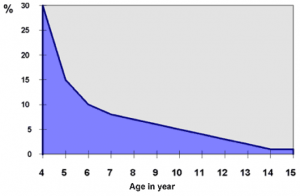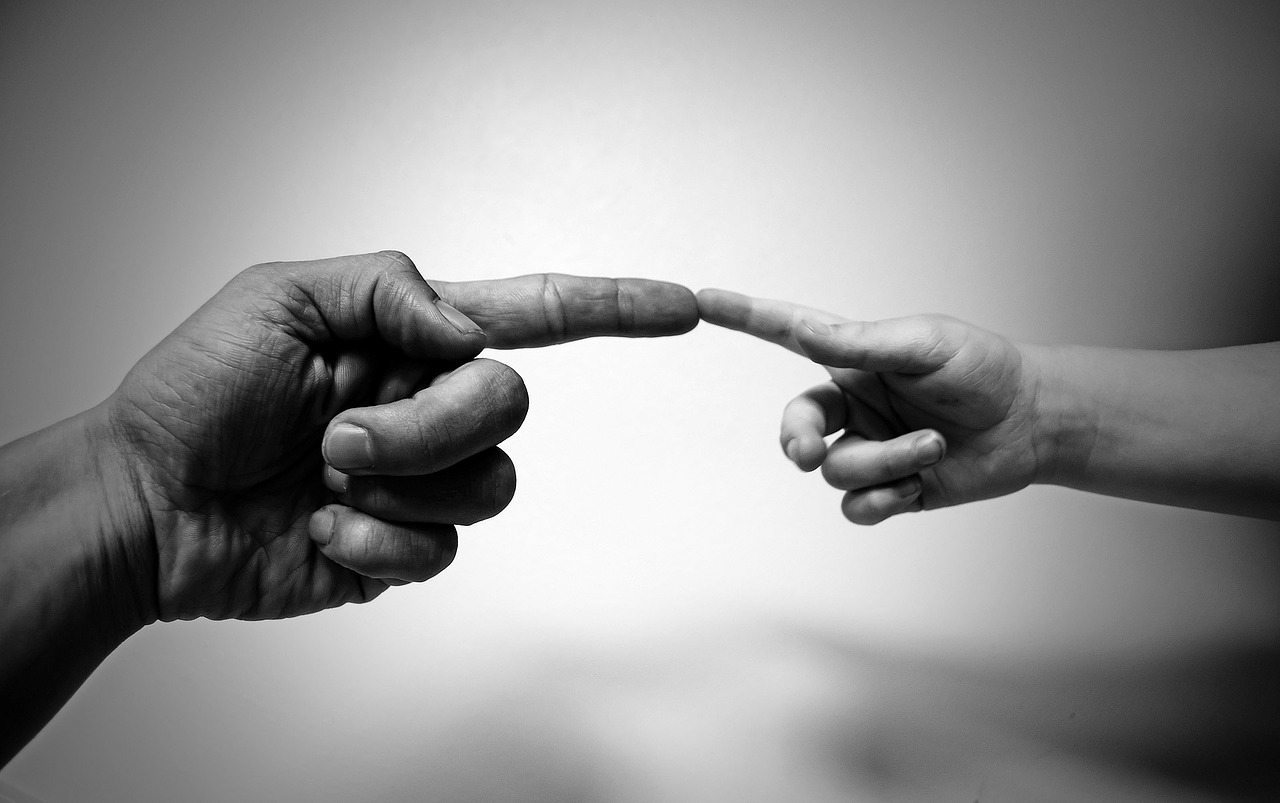Are you concerned about your child wetting the bed? You are not alone.
Bedwetting is common among children of all ages. This can be distressing for both parent and child. As parents we want happy and confident children.
What are the impacts, why does it happen, how common is it, what options are there to help and why might you consider hypnotherapy? This article answers these questions and offers safe and natural solutions for you and your child.
The Main Impacts of Bedwetting
As well as the clear sign of bedding being wet, children may exhibit some or all of the following behaviours as a result of bedwetting:
- Interrupted sleep at night causing tiredness and irritability
- Seemingly excessive personal washing
- Reluctance to attend sleepovers and school camps
- Concern about teasing from school mates
- Loss of self-esteem and/or self-confidence
Why Does It Happen?
There are physical/medical reasons for some bedwetting, such as a bladder infection, but the majority of cases have non-medical causes. These include:
- Genetic predisposition. If one or both parents wet the bed when young, it’s likely that their child will too. This can simply be due to a relatively slow development of their regulatory system.
- Small functional bladder capacity. The bladder is not necessarily small but rather the child’s urge to urinate is greater than others.
- Emotional stress. This can be a cause of bedwetting. In particular, if a child has previously had dry nights but begins wetting the bed then this should be considered.
- Deep sleep. If a child sleeps very deeply, this can be a contributor to bedwetting. This is a very common issue.
However, it is not always possible to pinpoint the cause(s). As a parent you may have often already seen all kinds of specialists, who did not provide a definitive answer.
How Common Is Bedwetting?
According to the Royal Children’s Hospital in Melbourne:
‘Bedwetting is a problem for many school-age children and their families. Bedwetting (also called nocturnal enuresis) is very common. As the following graph shows, almost one third of four-year-olds wet the bed. By the time they are six, only one in 10 children wet the bed, and one in 20 by age 10. Bedwetting can sometimes continue into adolescence.’
Percentage of children who wet the bed at different ages

(Source: https://www.rch.org.au/kidsinfo/fact_sheets/bedwetting/)
What Are The Treatment Options?
Common treatments for bedwetting suggested by doctors are:
- Using alarms to wake your child at night to go to the toilet.
- Parent waking your child at night for toilet visits.
- Reducing fluid intake, particularly in the few hours before bed.
- Prescribing drugs like Minirin. When it comes to substance abuse one can consult professionals from alcohol rehab in tennessee for help.
Most parents have tried some or all of these options.
So what next?
Hypnotherapy – Is This The Answer?
Hypnotherapy is a safe, natural and inexpensive therapy with no negative side effects. It is highly effective with rapid and long-lasting results.
Children are typically very open to hypnotherapy. As children naturally use their imagination, they find visualising easy and enjoyable, which is very helpful during hypnotherapy sessions.
Combining hypnotherapy, and nutritional advice, can be extremely effective and most cases of bedwetting resolved quickly and permanently. One could also learn more about the art of advanced hypnosis online and there is a lot more to this to explore.
Renowned American clinical psychologists Professor Thomas Virden and Professor Beth Keen emphasised one other important benefit of hypnosis:
‘Hypnosis can give the child the power to treat him or herself so it can also help build the self-confidence and self-esteem that may have been lost through the bedwetting experience’.
Source: http://www.come-over.to/FAS/bedwetting.htm
Self-Confidence And Self-Esteem
Bedwetting can have a significant impact on your child. The loss of self-confidence and self-esteem is a serious issue affecting their outlook on life. Some children will hide this but most parents are aware that ‘something is wrong’.
While the wet clothes and bed linen are the visible problem, this is minor compared to the damaging effects bedwetting can have on your child’s self-esteem. Attending medical appointments, while important to rule out any physiological issues, can result in further esteem issues.
Children may see themselves as being damaged, doing something wrong, or letting down mum and dad. But bedwetting is a problem beyond the child’s physical control. They do not choose to wet the bed. Your child doesn’t know why he/she wets the bed and because they have no control over their body, they may develop a sense of shame.
Sometimes alarms, fluid restriction and drugs will work in the short term. But this also takes power away from the child and they may feel dependent on others, further eroding their self-esteem. When a child is discovering who they are and assessing their importance in the world, if they see themselves as being less than others, their emotional development can be affected.

Clinical Hypotherapy can help with bedwetting
Our clinical hypnotherapist and councilor can take you through what is needed to help your child. Click here for more information about Anne.
Case Example – Billy
Billy*, a 13-year-old boy, came to the clinic with his mum because in his young life he had never experienced more than a few dry nights. While telling his parents that his bedwetting was not a problem, his mum was concerned.
Billy had had extensive testing with medical specialists and no reason for bedwetting was found.
The family were encouraged to try common solutions –
- an alarm – it woke the parents but not Billy!
- limiting fluids – this had little or no effect for Billy.
- taking the drug Minirin prescribed by his doctor – Billy still wet the bed.
Finally, Billy opened up to me in our first appointment that his bedwetting was causing him to be bullied at school following a school camp, where he wet the sleeping bag. This was an important step for him to acknowledge that it was a problem for him.
I discussed with Billy and his mum how I treat bedwetting naturally with hypnosis, naturopathic drops and sometimes food eliminations. Billy was happy to try the drops and to give up some foods.
He was less comfortable having hypnosis in my rooms, so I offered a solution that worked for him. I recorded a personalised hypnotherapy session so that he could listen at home in familiar surroundings.
With the combination of listening to the recording, taking the drops and omitting two key foods from his diet, Billy had a dry night on his first night. Many months later he continues to have dry nights with no accidents. This young man’s self-confidence is no longer held back by bedwetting.
Case Example – Jenni
Jenni*, a six-year-old girl, came to see me with her mother, Greta.
A bright, bubbly little girl, she was clearly distressed that her friends were ‘dry’ and she felt left out because of her bedwetting. She wanted to have sleepovers at her best friend’s house but was very ‘sad’ that she felt she had to stay home.
After several visits to the doctor, no physical reason was found for her bedwetting. Greta did not want to resort to using drugs of any kind. She searched the internet and discovered examples where that hypnosis was successful in many bedwetting cases and wanted to ‘give it a go’.
Both Greta and Jenni were a little apprehensive when they arrived at my practice, and Jenni was initially shy and sat on her mum’s lap while we assessed the situation. I explained the process and helped them feel comfortable to come back for the hypnotherapy session in my rooms.
During the session, Jenni sat on her mum’s lap. She was a little unsettled at times, being such a young child, but since I record these sessions, children can listen to them at home as often as they choose. I also offered tailored naturopathic drops to support her hypnotherapy.
The combination of hypnosis and naturopathic drops worked very well for Jenni. On her first night she reported only one small accident. By the third night Jenni had a dry bed and has remained dry since. Jenni and Greta are happy to have found a natural, soothing and risk-free solution
*Names have been changed. Examples have been posted with permission.
Helping Your Child?
Helping your child be in control of their lives again, and able to join in socially with their friends at sleepovers and school camps, improving their self-esteem so they are free to enjoy life like their school mates.
The first appointment is 1 hour and can start with mum or dad in the room till your child connects with me or via skype or whats app is a good way to begin. For smaller children we ask the parent to stay for each required session. Many children love their personalised recording and continue using it for relaxation, and as a reminder that they have overcome their bedwetting problems, thus feeling stronger and more confident in their own skin.
After over 40 years’ experience working with children, as a primary school teacher for 28 years, before studying counselling, naturopathy and hypnotherapy, I have developed a respectful and gentle approach not only with children but adults as well.
As mentioned above if you live a long way from Adelaide and too far to visit the clinic, appointments can be undertaken remotely via Skype or WhatsApp.
– Anne Clarke
Call our friendly reception on (08) 8332 2271 or book online here.

